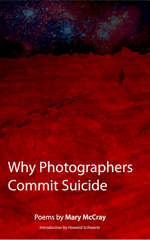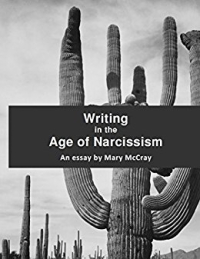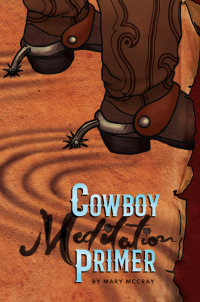 We are continuing through Elisa New’s queries on what poetry is, questions she posed in the Harvard Emily Dickinson MOOC. This week I’m actually going to combine eight of her questions into one, because they’re all related.
We are continuing through Elisa New’s queries on what poetry is, questions she posed in the Harvard Emily Dickinson MOOC. This week I’m actually going to combine eight of her questions into one, because they’re all related.
1) Is a poem still a poem if one only entertains one’s self with it internally?
This reminded me of Emily Dickinson. Does the poem exist in her chest (as in her bosom, as in a poem only internal to her) or in her chest (as in a very physical hope chest or chest of drawers where she hid 1800 or so of her poems during her lifetime)?
In the first scenario, the poem has not been physically written down yet, like possibly millions of other poems she never officially wrote out on paper. In the second scenario, she is still the only one (in her lifetime) entertained by them. Scenario #2 is still barely removed from “internally” and yet significantly different from “internally” because it is the only place that those poems have potentiality, the potential to be read in the future by another reader.
Once a poem moves from your brain to an external media, it assumes a future audience, even if you hide it somewhere. I feel the same way about journals, they assume an audience even if they are “private.” Only thoughts inside your head are truly private.
2) Where is the poem?
This question feels like a Zen Koan to me. I don’t even think we need to answer this one; we can just soak it in. But this question implies a poem taking up space in the world: where is it? A poem has a physical location. If a poem is only read aloud, does it have a physical location? Does a poem have to happen on paper to have a physical location?
3) Where does the poem really happen?
In my interpretation, this question implies a poem happening in time: a happening. “When” does it happen would be more accurate. A poem comes to be in a moment of time or a span of time. Is the time from thought to composition to appreciation all the time?
4) Where does a work of art really live?
This broadens the question out to all the arts and specifies its existence beyond being born in space and time. Where does it live out its life? In the collective mind? In our individual imaginations? Somewhere else? Some objective space (can it exist without other readers/listeners)? If a poem has been recited in a forest and there is nobody there to hear it…
5) Does it live in intention?
Here Elisia New starts to move through the stages of creation. The artist has intentions. The Adventures of Huckleberry Finn by Mark Twain is a great example of this. Twain specifically states that he does not have certain intentions for the novel:
“Persons attempting to find a motive in this narrative will be prosecuted; persons attempting to find a moral in it will be banished; persons attempting to find a plot in it will be shot. BY ORDER OF THE AUTHOR”
All the readers disagreed. There was a moral. There was symbolism in the Mississippi River which he also did not want attributed to his work. Georgia O’Keeffe consistently claimed her flowers were not vaginas and penises. Viewers don’t agree. They have agency to interpret what they see.
So you could argue that author intention is practically never the place where a piece of art lives. Artists give it their best shot and then release it into misinterpretations and multiple-meanings. I think this is why artists associate their work with the idea of having children: birthed by them but ultimately beyond their control.
Besides, intentions often exist before any work has been committed to any media. Million of ideas never come to life. Intentions are just part of the morass of our minds.
6) Does it live in the throes of production or composition?
This is the most fascinating stage for me, drafts, editing, iterations. In some cases, new drafts even occur post-publication, like W. H. Auden’s later-day revisions and Marianne Moore’s undoing of her poem “Poetry.”
Sally Bushnell’s book Text as Process explores the meanings of drafts and versions and it’s fascinating. She goes through different kinds of draft versions and levels and theories of composition. And the book made me think immediately about the singer Cher’s demos and remixes. Cher’s demo for the song “After All,” although it was technically a draft, became the final, “canonical” version of the song (with Peter Cetera’s vocal added later).
Similarly, there are album versions of particular songs and then often a fleet of remixes for songs delegated as “singles” or potential “hits.” And sometimes these “versions’ get confused. For example, maybe it’s the dance remix of a song (“When the Money’s Gone”) that is the one to chart as the hit, not the supposedly “canonical” album version of the song. Other times, later remakes of an artists song can take on another life. Cher’s song “Bang Bang” has not only been covered many times by other artists but by Sonny and Cher themselves who created later-day versions on live and studio albums, sometimes with altered lyrics. Where do those songs live in this sense? Which song is the version?
Maybe songs and poems exist in a separate space above and beyond all their variations.
7) Does it live as it’s appreciated by a social body?
This is where art moves beyond the artist and into society. The social body could be as small as one person (for example, love poems exchanged between two people) to small aficionado groups (at some point Cher’s fans were a large group, then a small group, then a large group again), or a small workshop group to a huge group of social media fans or best selling and anthologized poems. The size doesn’t matter.
To me the debate is between question 6 or 7. Are drafts considered poems proper? In some cases, definitely yes. Some drafts (things considered unfinished) become famous products. Especially drafts left incomplete when the artist dies. Maybe not all drafts are “canonical” but some can be promoted to canonical pieces.
Drafts that are never seen by readers ever, neither by researchers documenting famous creators in process or drafts published in published anthologies, are those drafts not still poems? Like some kind of twin to their more famous later-day finished draft?
8) Does it live when it’s canonized and is cherished through the ages?
This is an easy no, for me. Fame and success widely wax and wane. This rubric would exclude many, many artists who were discovered sometimes long after their deaths, from Emily Dickinson (who took decades to gain respect) to colonial poet Edward Taylor (who had to wait 200 years upon discover) and this illustrious list of major writers. The canon is fickle…thankfully. Generations disagree on who the “important poets” are.
Alternatively, poets like Katharine Hepburn’s poet, Phelps Putnam, was one of the most popular poet’s of his day. Now he’s considered Katharine Hepburn’s poet, although she was not even famous yet when he wrote about her.
Canonization and being cherished by hordes is irrelevant to the existence of a piece of art. If one single other person read or hears the poem, it exists.
I find it interesting how instinctually most artists yearn to impress their elders, their mentors. Audrey Hepburn for Cher is a good example of this but every artist has their people. But consistently artists always impress their youngers instead, the fans who come up behind them. This is often because mentors are part of the past. And this can feel frustrating. Thwarted intent again.
It speaks to the timing of your influence. You want to be anthologized, awarded and feted in your lifetime, benefits that are typically bestowed by elders and mentors in positions of power over the canon. But the most famous of artists and the artists with the great longevity are always fetted by their fans and this often happens long after their own deaths. Fans are crucial to post-mortem reputations. Fans have kept Shakespeare in business forever.
And post-death, does the artist possibly even care? In that sense, poems are more permanent than their poets. And so maybe we should move on to the question: where does the poet live?























